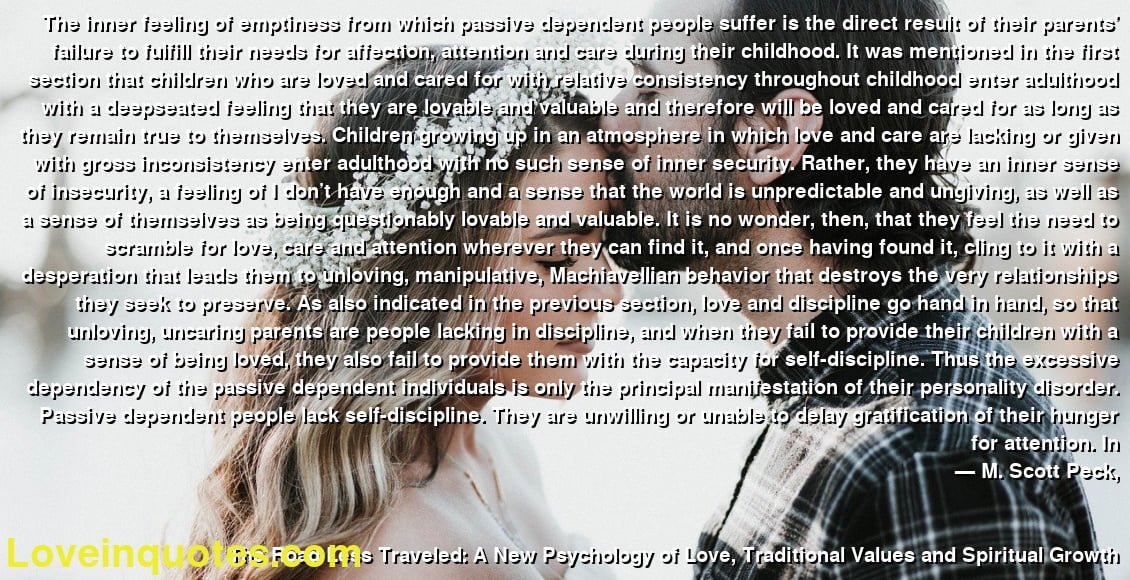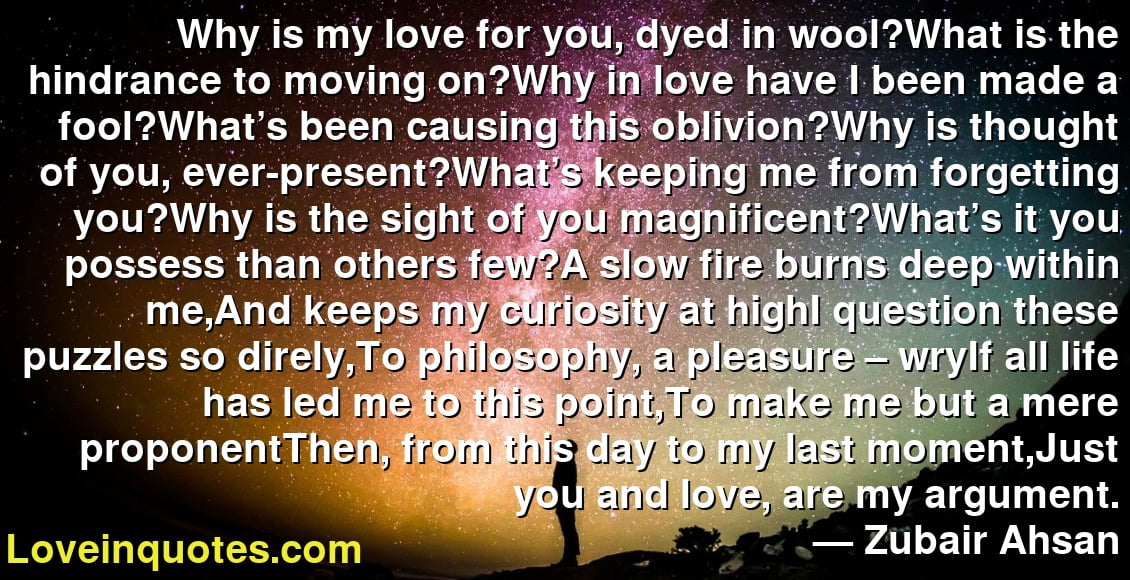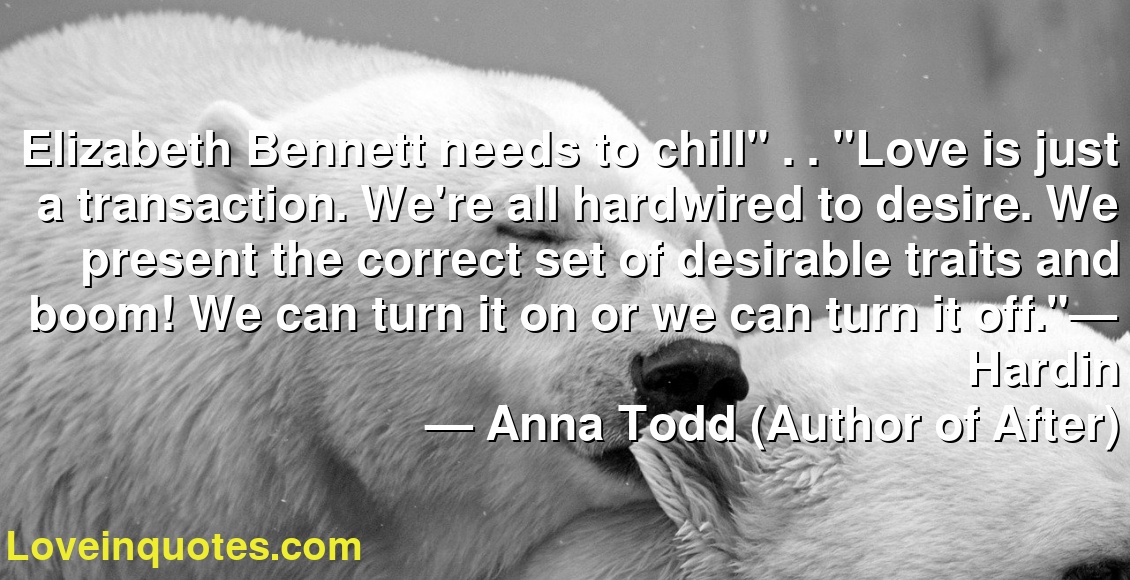
The inner feeling of emptiness from which passive dependent people suffer is the direct result of their parents’ failure to fulfill their needs for affection, attention and care during their childhood. It was mentioned in the first section that children who are loved and cared for with relative consistency throughout childhood enter adulthood with a deepseated feeling that they are lovable and valuable and therefore will be loved and cared for as long as they remain true to themselves. Children growing up in an atmosphere in which love and care are lacking or given with gross inconsistency enter adulthood with no such sense of inner security. Rather, they have an inner sense of insecurity, a feeling of I don’t have enough and a sense that the world is unpredictable and ungiving, as well as a sense of themselves as being questionably lovable and valuable. It is no wonder, then, that they feel the need to scramble for love, care and attention wherever they can find it, and once having found it, cling to it with a desperation that leads them to unloving, manipulative, Machiavellian behavior that destroys the very relationships they seek to preserve. As also indicated in the previous section, love and discipline go hand in hand, so that unloving, uncaring parents are people lacking in discipline, and when they fail to provide their children with a sense of being loved, they also fail to provide them with the capacity for self-discipline. Thus the excessive dependency of the passive dependent individuals is only the principal manifestation of their personality disorder. Passive dependent people lack self-discipline. They are unwilling or unable to delay gratification of their hunger for attention. In
― M. Scott Peck,
The Road Less Traveled: A New Psychology of Love, Traditional Values and Spiritual Growth
Like M. Scott Peck?
Buy M. Scott Peck products
[easyazon_link keywords=”M. Scott Peck” locale=”US” tag=”bestsellerlisting-20″] [/easyazon_link]
[/easyazon_link]
Do you Like Positive words, poetry and words to describe someone you love?
Check out
| https://positivewordsdictionary.com/ |
| https://wordsthatrhymewith.com/ |
| https://wordstodescribesomeone.com/ |




![Love doesn’t need consent or someone’s approval. It is as inevitable as life and death.
― Samreen Ahsan,
Once Upon A [Stolen] Time Love doesn’t need consent or someone’s approval. It is as inevitable as life and death.
― Samreen Ahsan,
Once Upon A [Stolen] Time](https://loveinquotes.com/wp-content/uploads/2021/05/love-doesnt-need-consent-or-someones-approval-it-is-as-inevitable-as-life-and-death-e28095-samreen-a.jpg)


